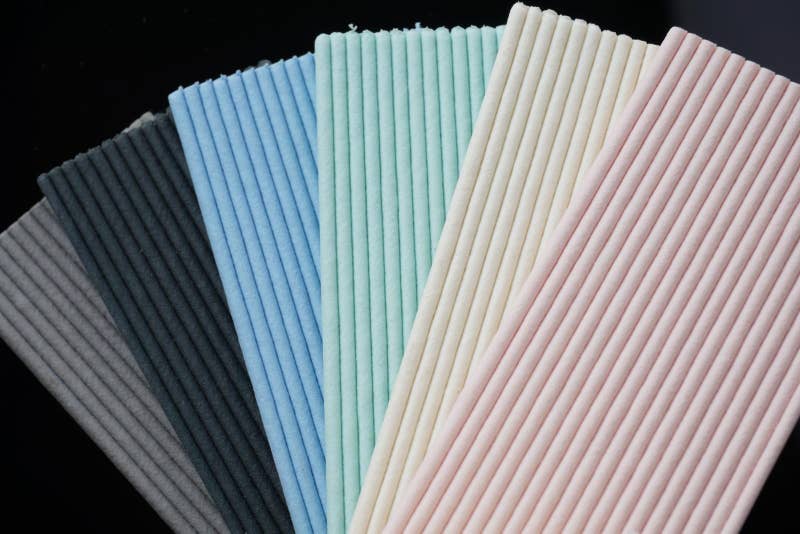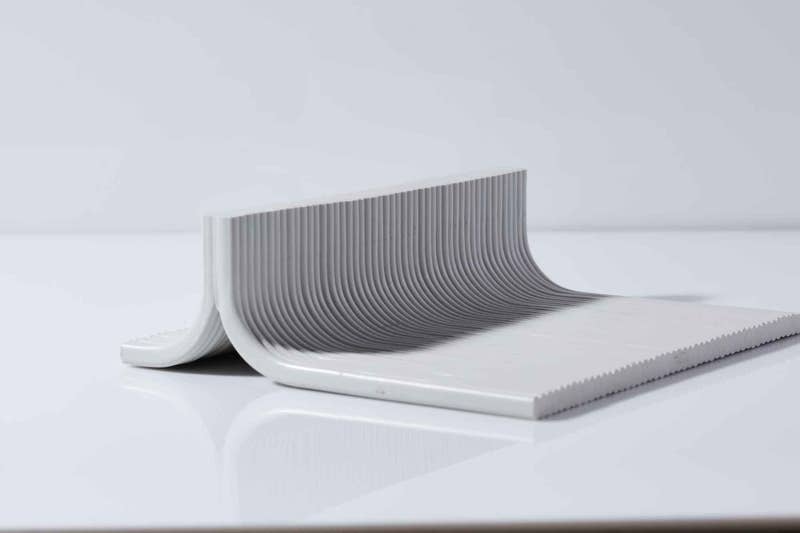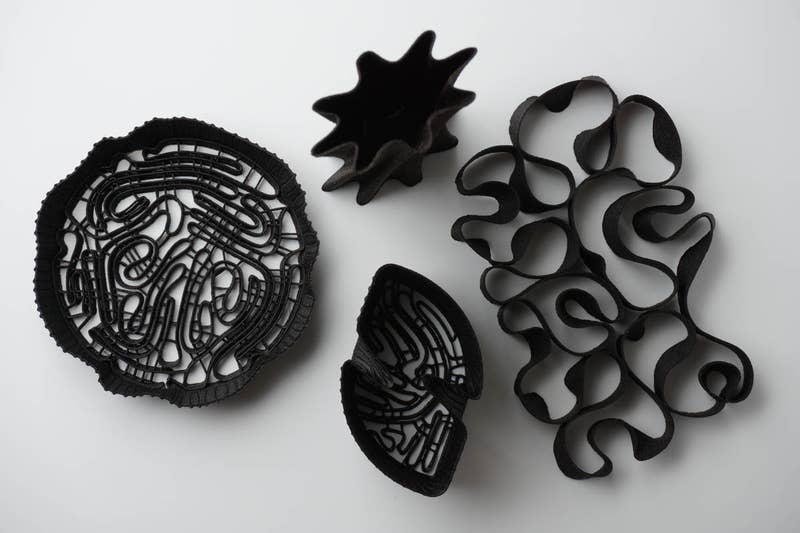
Recycled Materials and 3D Printing: three solutions
3D Printing and Recycled Materials
The circular economy is transforming the world of production, changing the way we conceive, create, and use materials and products. Within this context, 3D printing with recycled materials stands out as one of the most promising innovations, paving the way for sustainable manufacturing processes and significantly reducing environmental impact. The applications for 3D printing with recycled materials are incredibly versatile, spanning various sectors from fashion and architecture to furniture and consumer goods. The ability to produce customized objects at low costs has unlocked new possibilities for designers and businesses, enabling them to meet customer demands quickly and sustainably. Recycled materials, for instance, can be used to create architectural components such as facade panels and flooring systems or to produce value-added consumer goods.
Here are some examples from the Material ConneXion database, which is always updated with the latest trends in innovative materials.

Applications with Recycled Materials
A large-scale 3D printing platform now allows designers and companies to create custom and sustainable architectural products, promoting circularity within the construction industry. Utilizing recycled and bio-based materials, this technology enables zero-waste and low-emission production. Materials include biopolyamide resins derived from linseed oil and 100% recycled polypropylene. Through topological optimization techniques, panels and structures can be produced using up to 50% less building material. Products can also be re-engineered and printed up to seven times, thus reducing costs and material waste. Applications include wall panels, high-traffic flooring systems, and custom furniture like dividers, planters, and desk coverings, showcasing how 3D printing can revolutionize the industry with sustainable materials and eco-friendly practices.

In architecture and furniture, a proprietary 3D printing technology enables the transformation of recycled plastics (such as PETG, PS, HIPS, PC, ABS, PLA, and PA) into large-scale components ideal for furniture and other design objects. Unlike conventional methods like blow molding or injection molding, this process can handle small impurities or inconsistencies in materials, enabling sustainable, closed-loop production on a local level. These 100% recycled plastic components are waterproof and available in a wide range of colors and opacity levels. The technology allows for complex shapes, thicknesses between 8-16 mm, and structures as tall as 3 meters, with significant customization options for size, shape, and color. Applications range from custom furniture and decorative elements to lighting, home accessories, and multi-material components.

A new frontier in 3D printing is natural, compostable biopolymers made by combining polyester produced by bacteria with coffee waste. This material, consisting of 60% micronized coffee powder and 40% polyhydroxybutyrate (PHB), gives new life to coffee grounds collected from local cafes, restaurants, and industrial coffee production, transforming organic waste into a valuable, sustainable resource. Coffee-based biopolymers not only reduce production costs but also provide a unique sensory experience with the natural appearance and aroma of coffee. With a raw yet homogeneous aesthetic difficult to achieve with other materials, this polymer promotes a more natural look for 3D printed designs. Available in pellets or filaments, it is durable, flexible, and lightweight, with shades ranging from brown to black and optional bio-based pigments for color consistency. Applications include everyday products such as lamps, containers, vases, jewelry, and utensils.
Contact Materially to learn about Material ConneXion’s Materials Insights subscription: thousands of innovative material content and trend reports, plus access to the Materials Library with a database of 10,000 innovative materials you can consult for your innovation projects. For more information, write to info@materially.eu.


